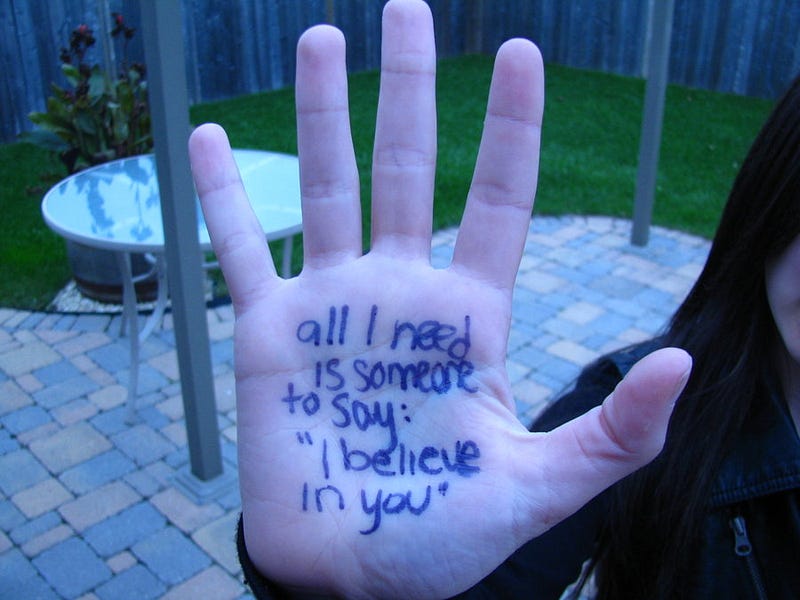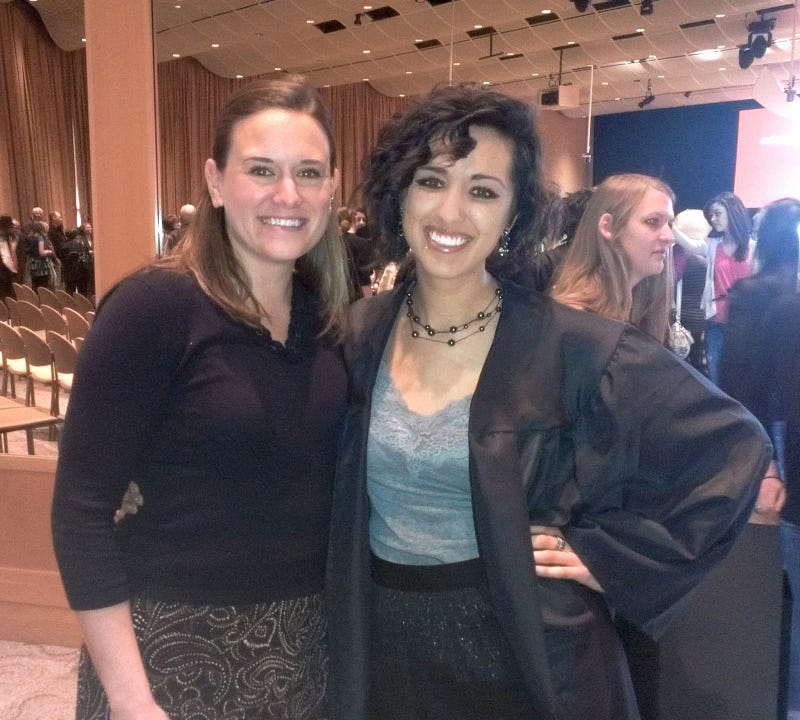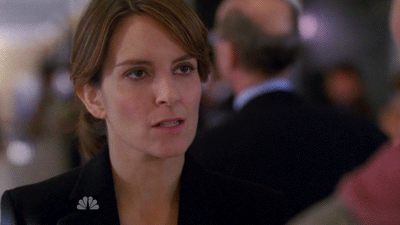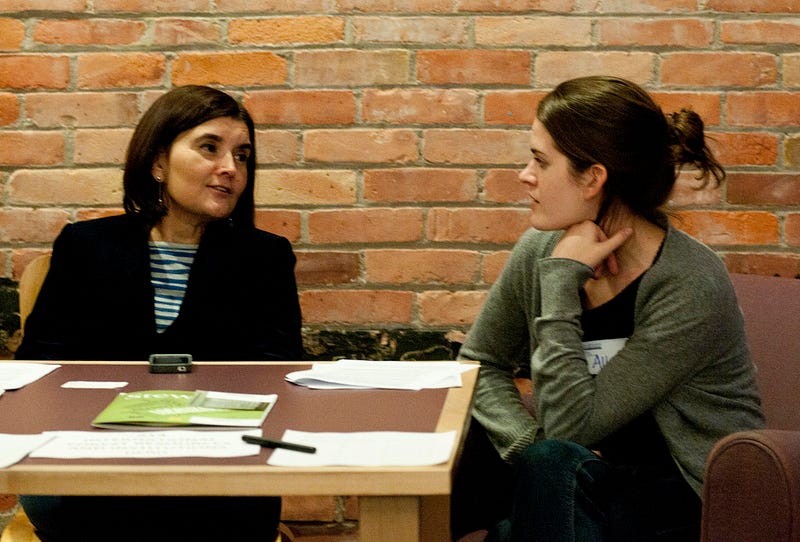Getting the Best Letter of Recommendation
From College to Grad/Med/Law School to Scholarships and Jobs, these are the tips everyone should know
“It’s a brilliant surface in that sunlight. The horizon seems quite close to you because the curvature is so much more pronounced than here on earth. It’s an interesting place to be. I recommend it.” –Neil Armstrong
At some point in your life — at some point in all our lives — we need to enlist the help of others in putting in a good word for us. When you apply for college, you need a series of recommendations; when you apply for advanced degrees, scholarships, fellowships, grants and jobs anywhere in the world, you need them even more. This doesn’t change much, either, as you get older, except you often find that you’re the one giving the recommendations even more often than you’re asking for them.
That said, when the time comes, you want to make sure that the people you’re asking to recommend you are doing so with the greatest, most sincere, positive convictions that you’re absolutely optimally suited for whatever it is you’re applying for.

So how can you tell:
- whom you should ask,
- whom you shouldn’t ask,
- when you should change your mind,
- and — if you’re the one being asked — when to say yes and when to say no?
What follows is — based on my own personal experience and the experience of others I’ve seen succeed, fail, and learn from their mistakes — the best advice I wish I had when I was younger. (No names are used in these stories, but those of you who’ve known me for long enough will likely recognize who I’m talking about. Please be respectful and preserve everyone’s anonymity.)
The year after graduating college, I went and taught High School in Los Angeles. It was one of the toughest jobs I’ve ever had to this day, and it made me really question what I wanted to do next with my life. When I decided to apply for graduate school in astrophysics/cosmology, I had to decide which three people I should ask for letters of recommendation. The first person I chose was someone I had worked under doing summer research; the second was an astronomy professor whose course I had gotten an “A” in; the third was another astronomy professor I had gotten an “A” from, and also the head of an REU program (Research Experience for Undergraduates) that I did award-winning research for.
The first person was extremely enthused that I was applying for graduate school and excitedly said yes and without hesitation; the second person was very happy for me and expressed their happiness to write me a letter; the third person wrote me back and literally made me rethink my life.
Highlights from his response included:
- Telling me his assessment of the state of the job market and telling me that I was unlikely to be able to have a good career doing this,
- Telling me that the graduate schools I was thinking of applying to were unrealistically lofty choices for someone of my academic caliber,
- That only the best people would be able to succeed at this and that I wasn’t one of them,
- That — if I did insist on pursuing this — I should start thinking about (his words) fourth-tier schools like Southwest Missouri State University (which, after checking, didn’t even offer a Ph.D. in physics, only a Masters degree), and
- That he would prefer not to write me a letter of recommendation, and neither would anyone else associated with the REU program he ran.
Now, I don’t know how thick your skin is, but after reading his response to me, even my most optimistic moments were filled with self-doubt. So I went and asked the head of the program I had majored in as an undergraduate about graduate school, about what he thought my chances were, and whether he legitimately thought — you know, because I was shaken — I could be good at it if I gave it my all.

“Of course you can go to a good graduate school,” he wrote me, almost dismissive of my insecurities, like I’d be crazy for thinking otherwise, “and I’d be more than happy to write you a letter of recommendation for it.” So he did, along with the other two people who’d said yes, and of the seven schools I applied to, I was accepted into five, and even offered scholarships and fellowships along the way.
There was a lesson to be learned from this, but I wasn’t aware of what that lesson was until many years had passed.
Ask the right people for letters of recommendation. What makes someone the right person? It isn’t just someone who you did good work for, whose project you excelled on, or whose class you got the best grades in. It’s someone that:
- You have a tremendous amount of respect for, both intellectually and personally,
- You have taken advantage of the opportunity to demonstrate many positive qualities about yourself and your work in front of, and
- Is someone you believe will push for you, and will advocate strongly for you to help you get your foot-in-the-door to achieve your goals.
Sometimes, you don’t (or can’t) know who that is until you ask, but if I had thought of these three criteria, I never would have asked the original third professor, who would have failed both the first and third litmus tests.
In other words, don’t pick someone that you don’t hold a very high opinion of; make that a prerequisite for even asking for a recommendation.

Which brings me to another story. I was in my second year of graduate school, applying for a presitigious NSF fellowship. I needed three letters of recommendation, and so I asked three professors whose graduate classes I either had aced or was in the process of acing. Again, two were very enthusiastic, but the third, even though I was right at the top of the (legendarily challenging) class they were teaching, seemed to be very lukewarm about writing me a recommendation. I was surprised, because based on any objective metrics, there was absolutely no reason for this person to respond that way.
The thoughts immediately raced through my head that I should try and convince this person that I — based on the work I had done — was worth writing a strong letter of recommendation for.
But that was the wrong approach. Think about it: even if I had done so, and succeeded, what kind of letter would I have gotten? Would I have gotten a letter that argued convincingly that I deserved to stand out against a field of other eminently qualified applicants?

No.
At best, I would have gotten a letter that stated many positive, objectively true facts about me, but wouldn’t have expressed any passion that I was someone worth believing and investing in. And if someone’s going to write you a letter of recommendation, you need that.
In short, if someone needs any sort of arm-wringing or convincing to write you a letter of recommendation, do not let them. Walk away, and ask someone who doesn’t need any further convincing to believe in you.

And — from the other side of the table — when you’re the recommendation writer, you have an additional responsibility. I’ve had former students of many ability and achievement levels ask me for recommendations, and in all cases, they’ve been students I’ve liked, respected and whom I’ve wanted to succeed. But some of them were low-or-average achievers; some failed to work consistently hard or complete all their assignments; some even made it a habit to (unexcusedly) not show up much of the time.
Here’s the thing: if someone asks you for a letter of recommendation, and you wouldn’t say extremely, overwhelmingly positive things about them, you shouldn’t write them a letter. I won’t do it; I won’t write anyone a letter of recommendation that damns them with faint praise. If you have to think twice about recommending someone, whether that means you can’t remember them or whether that means there were five-to-ten other people in that class you’d recommend above them, you shouldn’t write a recommendation for them.
And when you do turn them down — and you should; it’s cruel and harmful to write someone a letter of fainthearted endorsement — do it kindly. Don’t discourage them from following their dreams, don’t tell them that they can’t or won’t achieve them, and don’t give them your professional opinion or assessment of them, or why you didn’t choose to write them a letter of recommendation. Simply tell them that the only letters that you’ll write are ones that are unequivocally positive and in the student’s favor, and that they deserve a letter that does exactly that. Wish them luck and success, and politely decline.

They’ll be bummed that you said no; rejection always hurts. But it hurts a lot less than getting shut out of your dreams because someone wrote you a letter — nominally in support of your application — that failed to support you at all.
In summary:
- Ask the people who you respect the most who have every reason to respect and advocate for you.
- If they don’t give every indication that they do, in fact, respect you and will write an outstanding letter for you, don’t let them. Pick someone else.
- Only agree to write letters that are of the highest caliber; do not waste your time and ruin someone’s chances for success if you shouldn’t be writing them a letter in the first place. And finally…
- The world is full of people who don’t believe in you. Don’t let them steer you away from following your dreams. Dream it, follow it, and be it!
Have a comment? Leave it at the Starts With A Bang forum on Scienceblogs!





